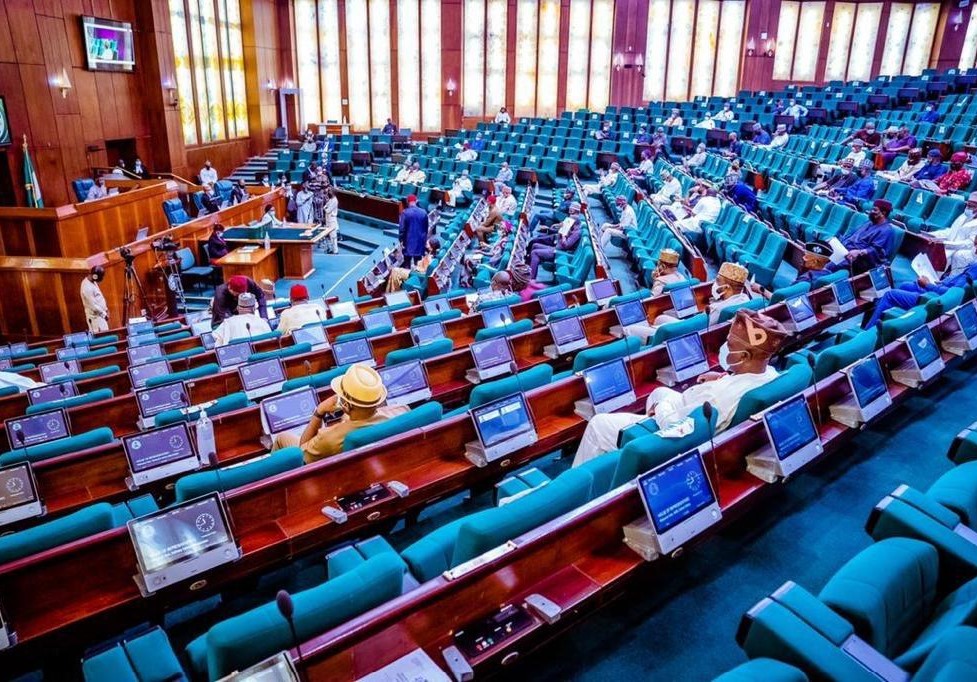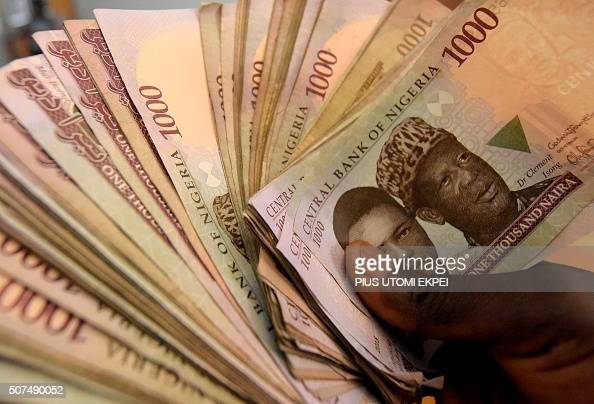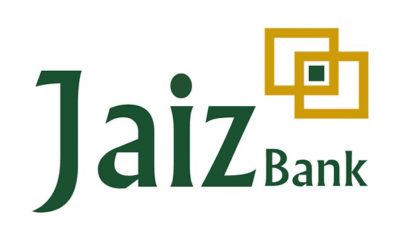BUSINESS
Return FG’s Unclaimed Funds or Face Sanctions, Reps Tell Banks

By Ubong Ukpong, Abuja
The House of Representatives ad-hoc committee, investigating the unclaimed funds in the nation’s commercial banks and infractions by the Central Bank of Nigeria (CBN), yesterday, told the banks to tow an honourable path and return federal government’s unclaimed funds, or get prepared for sanctions.
Committee Chairman, Honourable Unyime Idem, at the inaugural sitting of the committee, said the affected commercial banks should feel free to do so, promising that their interests would be protected.
“The House will not hesitate to stop you from collecting funds that belong to the Federal Government, but if you cooperate, it will be a win, win situation.
There won’t be any problem,” Idem assured the commercial banks.He said as at last week, letters had gone out to the banks detailing them on this position of the House and the probe.
The Chairman said two weeks were given to the banks to prepare their submissions and tidy up their books for the exercise, before they would be scheduled to appear before the committee to defend their submissions.
Rep Idem said the committee would recover any hanging fund that is currently in the hands of unauthorized persons, organizations, to the coffers of the Federal government.
In his welcome remarks at the opening, Hon Idem said, “This exercise we are embarking upon has become compellingly imperative as our budget deficit in Nigeria continues to grow viz-a-viz the Gross Domestic Product (GDP) in recent years. It has exceeded the 3% benchmark in the last three years. The highest was in 2021 at 3.67% while that of 2020 was 3.03%.
“These deficits are being financed by Domestic and Foreign Loans which are no longer sustainable as the debts are mounting in the face of our dwindling resources and on the other hand, our nation is faced with multi-faceted challenges ranging from insecurity, high rate of unemployment and hyper-inflation to mention just a few.
“This is indeed a matter of concern to the House of Representatives of the Federal Republic of Nigeria, hence the setting up of this Ad-Hoc Committee by the Honourable Speaker, Rt Hon. Femi Gbajabiamila.
“For the information to all the stakeholders, the core objective of this committee’s assignment is to recover any hanging Funds that are currently in the hands of unauthorized persons/individuals and Corporate bodies.
“The work of the Committee would focus on the following amongst others:
“(i) Identification of the critical stakeholders in the issue of Unclaimed Funds in Nigerian Commercial Banks & the Infractions by the Central Bank of Nigeria.
ii) The specific roles of the Central Bank of Nigeria, the Commercial Banks and the Ministries, Departments and Agencies (MDAs) of the Federal Government of Nigeria on the issue of unclaimed funds etc.
“iii) The level of Compliance with the Treasury Single Account (TSA) policy by the MDAs since its commencement in December 2015.
“iv) Review of long outstanding Advance Payment Guarantees (APGs) issued on Federal Government projects, and monies held because of failed and unexecuted contracts etc.
“v) Evaluation of the Level of Compliance with the operation of the Bank Verification Number (BVN) regime by the Nigerian Commercial Banks under the supervision of the Central Bank of Nigeria (CBN) and other stakeholders such as the Nigerian Inter Bank Settlement System (NIBSS).
“(vi) Review of Central Bank of Nigeria (CBN) Intervention Funds/Scheme from year 2000– 2021 in order to evaluate its impact and also conduct an assessment of its operations.
“(vii) And most importantly, to recover all identified hanging funds in the custody of unauthorized persons and corporate bodies to the coffers of the Federal Government of Nigeria,” he enumerated.
The Chairman said it was the opinion of the House of Representatives that recovery of a substantial part of these hanging funds would assist the Federal Government of Nigeria to improve budget funding and consequently a reduction in budget deficit, amongst other areas.
Inaugurating the committee and declaring open the public hearing, Speaker Femi Gbajabiamila, represented by his deputy, Rep Idris Wase, urged the stakeholders to cooperate with the committee to achieve the desired of the House of Representatives to recover these unclaimed funds.
BUSINESS
Digital Bank PalmPay Gets Recognition

Torough David
Digital bank PalmPay has once again secured global recognition, earning a place on CNBC and Statista’s 2025 Top 300 Fintech Companies in the World list.
This marks the second consecutive year the fintech platform has been listed among the world’s most innovative and impactful financial technology firms, placing it alongside global giants such as Revolut, Nubank, and Ant Group.
In a statement on Tuesday, the Founding Chief Marketing Officer at PalmPay, Sofia Zab, described the recognition as a strong validation of the company’s commitment to financial inclusion across emerging markets.
“To be recognised as one of the world’s top fintech companies by CNBC and Statista is a powerful affirmation of our mission to build a more inclusive financial system,” she said.
Zab noted that PalmPay’s strategy combines cutting-edge technology with deep local distribution to meet the needs of underserved communities.
“Through a customer-first mindset, we’ve built Nigeria’s leading neobank,” she added.
PalmPay currently serves over 35 million registered users, processing up to 15 million transactions daily. In Nigeria, its core market, PalmPay operates as a full-service neobank, offering services such as transfers, bill payments, credit, savings, and insurance, all available through its user-friendly mobile app.
The company also maintains a nationwide network of over one million agents and merchant partners and provides POS and API-driven solutions for merchants and enterprise clients.
Group Chief Commercial Officer at PalmPay, Jiapei Yan, said the fintech platform is building a neobanking infrastructure that aligns with the realities of emerging markets.
“We are creating the infrastructure for a connected digital economy where people and businesses can thrive through reliable, inclusive financial tools,” Yan said.
He added that the CNBC and Statista ranking not only affirms PalmPay’s progress but also highlights the scale of opportunity in emerging markets.
PalmPay recently expanded into Tanzania and Bangladesh, using smartphone device financing as a gateway to digital financial services for new users in these regions.
“Our focus remains on closing financial access gaps for everyday consumers and businesses, while expanding the partner ecosystem that fuels our reach and impact,” Zab said.
Earlier this year, PalmPay was also ranked #2 overall and #1 in financial services on the Financial Times Africa’s Fastest-Growing Companies 2025 list. The ranking reflected the company’s rapid scale and market traction, based on revenue growth between 2020 and 2023.
BUSINESS
CBN’s Rates Hold Anticipated, New Strategies Important against Downsides – CPPE

The Centre for the Promotion of Private Enterprise (CPPE) said the decision of the Monetary Policy Committee (MPC) of the Central Bank of Nigeria (CBN) to hold the interest rates was anticipated.
Chief Executive Officer of CPPE, Dr. Muda Yusuf said this in an interview on Wednesday in Lagos.
Yusuf said that although the decisions of the MPC were not surprising, the apex bank and managers of the nation’s economy must evolve additional strategies, including trade policy shifts against inflation.
He was responding to the outcome of the 301st MMPC meeting.
The MPC retained the rates for the third consecutive time, holding the Monetary Policy Rate (MPR) at 27.
5 per cent.The Cash Reserve Ratio (CRR) was retained at 50 percent for deposit money banks and 16 per cent for merchant banks.
It also retained Liquidity Ratio at 30 per cent and the Asymmetric Corridor at +500/-100 basis points around the MPR.
Yusuf said that the outcome was anticipated based on current realities, adding that the decision had both positive and negative consequences for the nation’s economy.
He said it was expected that current rates would be maintained due to CBN’s consistent approach of not cutting rates until inflation significantly moderates.
He said that inspite of marginal deceleration in annual inflation to 22.22 per cent, month-on-month headline, food, and core inflation all increased in June.
According to him, the CBN cited inflationary trends coupled with persistent factors like high energy costs, insecurity, exchange rate volatility and logistics expenses as reasons for its decision.
He stressed the need for more affordable funds to boost economic growth and investment, noting that interest rates exceeding 30 per cent are highly prohibitive.
The CPPE boss, however, said that economic management involved trade-offs.
He said that CBN’s tight monetary stance, characterised by high interest rates, had successfully attracted an inflow of foreign exchange through portfolio investments.
Yusuf said that the influx of forex was a key positive outcome that justified CBN’s decision to maintain monetary tightness, even if it appears to hinder direct investment and growth.
He said that CBN’s decision had several implications, adding that financial instruments will continue to offer attractive returns, benefiting investors in these areas.
Yusuf said that the country needed factors that could bring down the cost of production, distribution, and the cost of importation of critical input for production.
“There are already some actions, we need more effective and impactful actions on insecurity, so that our food production can also be scaled up.
“These are some of the additional things that need to take place on the policy front to complement whatever the monetary policy authorities are doing.
“Clearly, monetary policy alone or monetary policy instruments alone are not sufficient to effectively tackle inflation,” he said.
BUSINESS
IMF Predicts 0.5% GDP Revenue Loss for Nigeria

Torough David, Abuja
The Federal Government may lose as much as 0.5 percent of the country’s Gross Domestic Product in revenue following its decision not to raise the Value Added Tax rate, the International Monetary Fund has disclosed.
In its latest Article IV Consultation Report on Nigeria, the IMF stated that although the recent tax reforms approved by the National Assembly and President Bola Tinubu represent a major step forward in modernising the VAT and Company Income Tax regimes, the choice to maintain the current VAT rate would lead to an immediate revenue shortfall.
“The decision not to raise the VAT rate now is reasonable, given high poverty and food insecurity, and with the cash transfer system to support the most vulnerable households not yet fully rolled out.
However, this will reduce consolidated government revenue by up to ½ per cent of GDP in the authorities’ estimates,” the report noted.While the Federal Government is expected to be largely insulated from the fallout—thanks to expected gains from improved CIT compliance—the blow will be felt most by state and local governments.
According to the Fund, unless alternative financing options are found, subnational governments may be forced to either scale back spending or ramp up their own revenue efforts.
The IMF, however, acknowledged the government’s justification for delaying a VAT hike, particularly at a time of worsening poverty and food insecurity.
With only 5.5 million of the targeted 15 million households reached under the federal cash transfer programme, the Fund noted that raising VAT at this stage could further strain vulnerable households.
Nonetheless, it cautioned that the cost of delaying reform would fall on already stretched public finances, especially at the subnational level.
“Assuming no alternative financing sources, they [states and LGAs] would have to raise additional revenue or reduce spending, which is assumed in the baseline,” the report said.
Despite this challenge, the IMF welcomed the tax reform agenda being driven by the Presidential Committee on Fiscal Policy and Tax Reforms, describing it as critical to reversing Nigeria’s poor revenue-to-GDP ratio, one of the lowest globally.
The reforms aim to boost compliance and enforcement, and the Fund believes they hold “significant medium-term revenue potential” once fully implemented.
Measures include modernising the VAT and CIT frameworks, tightening exemptions, and introducing digital tools to monitor compliance. Total revenue and grants reached 14.4 per cent of GDP in 2024, up from 9.8 per cent in 2023, buoyed by currency depreciation and improved administration.
However, public debt also rose, hitting 52.9 percent of GDP last year, with interest payments consuming 41.1 percent of Federal Government revenue. The IMF advised the government to maintain a neutral fiscal stance in 2025, stressing that revenue shortfalls should not lead to excessive borrowing.
It also urged the authorities to clearly set out a medium-term revenue plan, including timelines for further tax policy changes, to restore investor confidence and ensure policy credibility.
The report stated, “Pre-committing to an implementation timeline for further policy measures in an updated medium-term framework would support fiscal sustainability and provide guidance on available fiscal space for development spending and support for the most vulnerable households.”
Nigeria’s decision not to raise VAT comes at a time of heightened global and domestic uncertainty. Lower oil prices, rising financing costs, and mounting social pressures have narrowed the government’s fiscal space.
The IMF observed that while reforms since 2023—including fuel subsidy removal and the liberalisation of the foreign exchange market—have improved macroeconomic stability, their benefits have yet to trickle down to most Nigerians.
With inflation still elevated at 22.9 per cent as of May 2025, and poverty levels worsening, the government appears to be prioritising stability over revenue acceleration, for now.
However, the IMF warned that the long-term cost of inaction could be higher if reforms stall or if subnational governments struggle to adjust.
In the meantime, the IMF continues to support Nigeria’s reform efforts, including through capacity development and the deployment of a resident advisor to assist with revenue mobilisation strategies.
The Nigeria Economic Summit Group warned that the Federal Government could face revenue shortfalls if it does not increase the value-added tax rate as part of the ongoing tax reform process.
The Chief Executive Officer of NESG, Dr. Tayo Aduloju, made this statement during an interactive media session in Abuja. He emphasised that while reforms in the VAT system are essential, maintaining the current VAT rate without an increase could lead to a significant loss of revenue for the government.
Speaking on the issue, Aduloju said, “Without those rate hikes, it means that the government might lose some revenue.” Aduloju explained that the current tax reform process must strike a balance between simplifying the tax system and increasing the VAT rate to maintain revenue stability.
According to him, simply reducing the number of taxes without adjusting the VAT rate could weaken the government’s revenue base.
| ReplyReply allForwardAdd reaction |





























